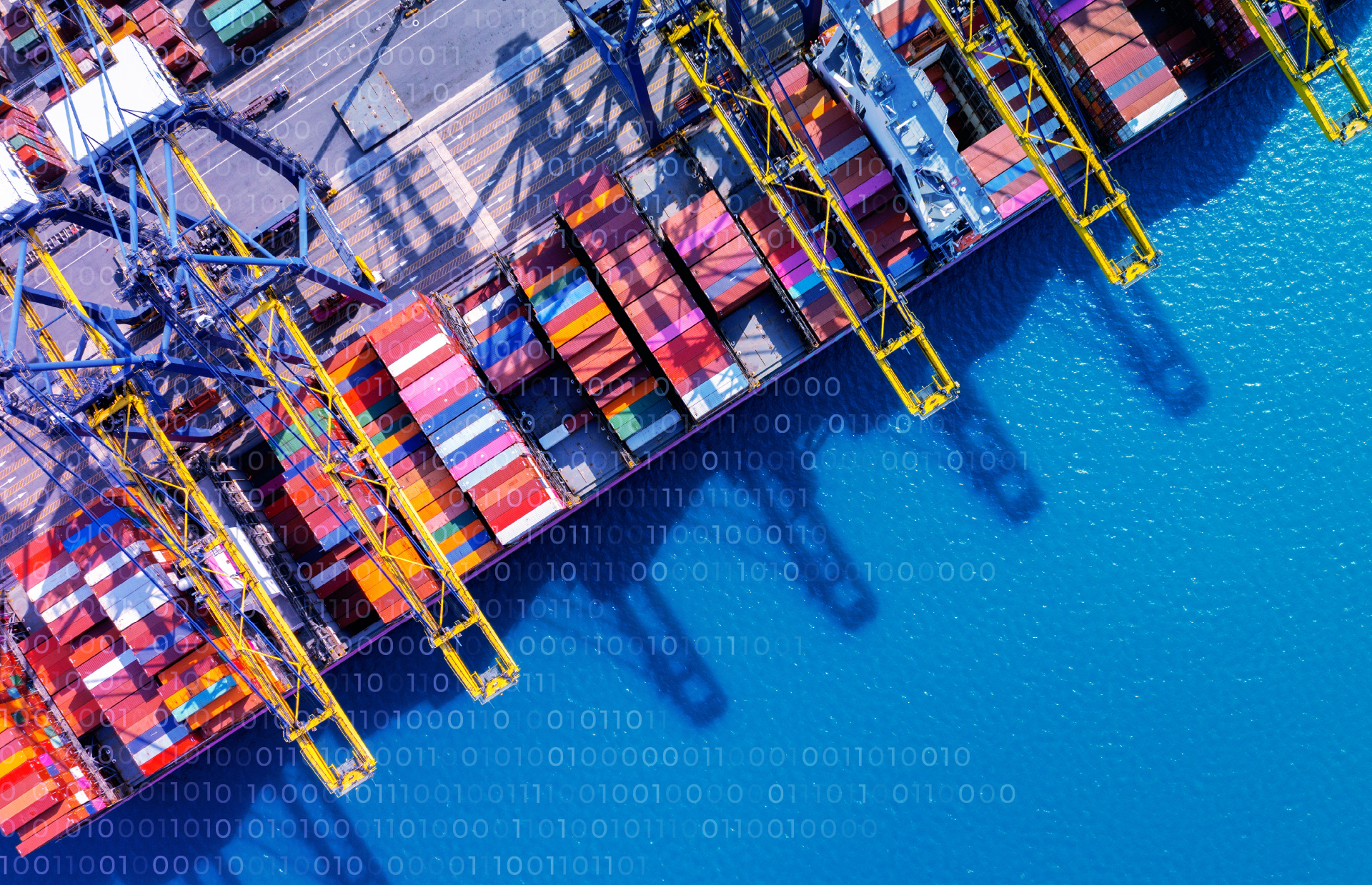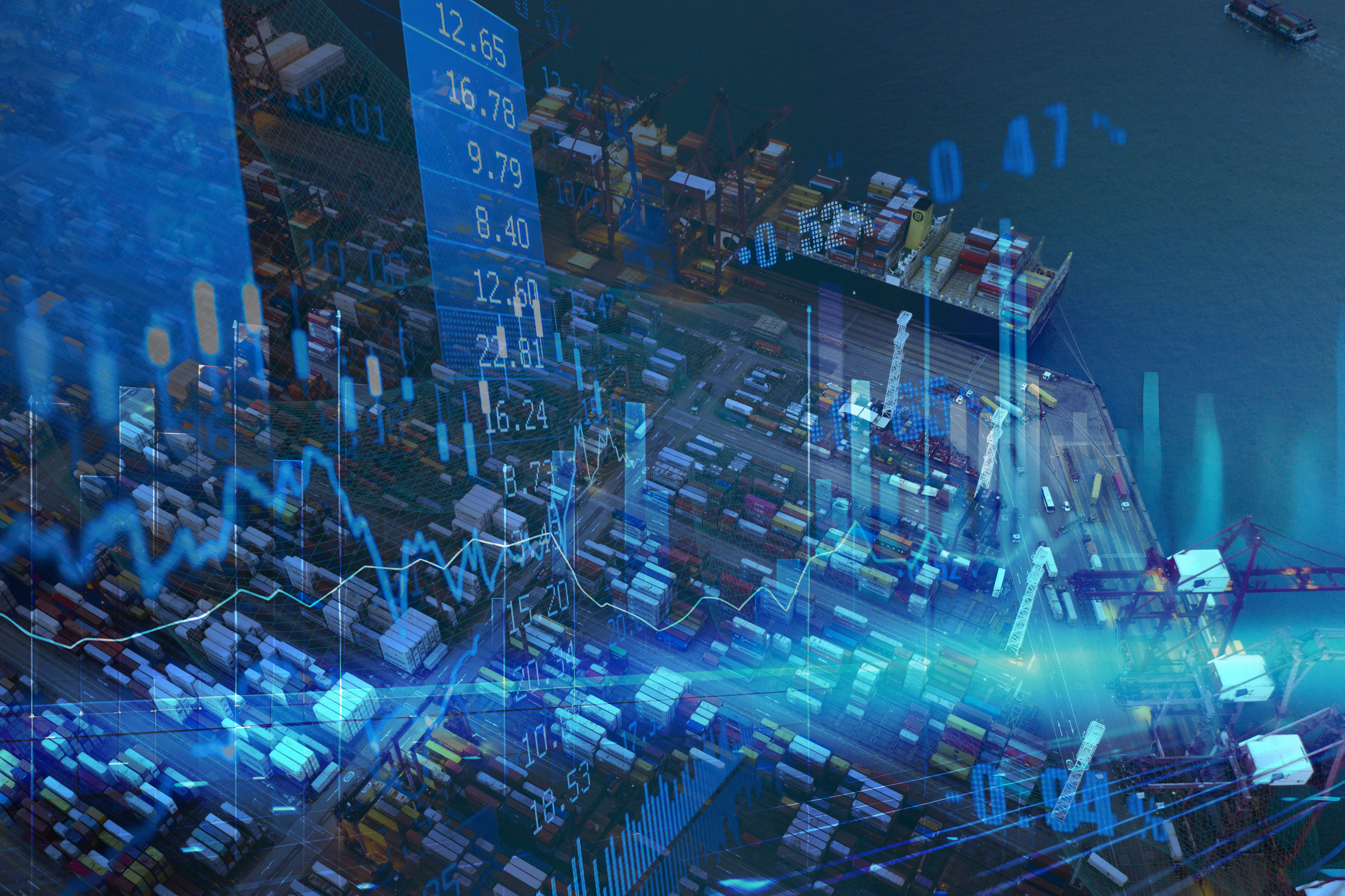
Shipping companies Maersk and Hapag-Lloyd embark on an operational collaboration called "Gemini Cooperation". Analysis in 5 questions and answers.
Should we see a nod to our friends "across the pond"? In any case, for their future operational alliance, Maersk and Hapag-Lloyd chose to christen the agreement with a name, Gemini, that brings to mind the epic NASA program. Announced on January 17, almost a year to the day after the scheduled end of the M2 alliance between Maersk and MSC, this rocket will be expected to blast off in February 2025.
Both partners believe that the Gemini Cooperation will allow them to improve the quality of service provided to the customer. To achieve this goal, they will pool a number of resources, namely ships but also port terminals over which they have control. In the way of integrators, it is therefore a question of creating a network built on a fairly conventional scheme of "hubs and spokes", thanks to the control of their own resources.
The new cooperation between Hapag-Lloyd and Maersk will include a fleet of approximately 290 vessels with a combined capacity of 3.4 million TEUs, 60% of which will be provided by Maersk and 40% by Hapag Lloyd. It will concern 26 mainline ocean services, complemented by a network of dedicated shuttles to connect transshipment hubs owned and/or controlled by the two partners (14 shuttle services in Europe, 4 in the Middle East, 13 in Asia and 1 in the Gulf of Mexico). Through this network, Maersk and Hapag-Lloyd plan to achieve schedule reliability in excess of 90%.
But beyond the figures put forward by the two partners, some additional elements of explanation are necessary.
1/ A defensive or offensive move?
Indeed, this is a rather defensive cooperation. Since the announced end of the M2 alliance, Maersk was well aware that it would not be able to go it alone if it wanted to exist on the world stage, unlike MSC. In this post-divorce context, Maersk therefore had no choice but to either seal multiple regional alliances or a global alliance with a single partner.
2/ Was Maersk lacking ships?
Between the US state requisition programs through Maersk Limited and the detours via the Cape of Good Hope and Cape Horn imposed by navigational difficulties through the Suez Canal and the Panama Canal, the necessary capacity to be able to offer quality services to direct shippers, which remains the DNA of Maersk's commercial strategy, is in short supply. Hapag-Lloyd, for its part, is still finding the mega-container ships of the former UASC a bitter pill to swallow, as they are starting to come of age and enter the full profitability which it is struggling to attain with its current partners of THE Alliance (ONE/Yang Ming/HMM). Between, on the one hand, Maersk which is suffering from undercapacity and with a limited order book, and, on the other hand, Hapag-Lloyd in slight overcapacity, the agreement is facilitated.
3/ Will THE Alliance be able to survive without Hapag-Lloyd?
Not only does this cooperation not affect the survival of THE Alliance, but it may even be seen as an opportunity for it to (finally) deploy all the new current and future capacity of the companies HMM and Yang Ming, which is far from being negligible. However, ONE, the 4th partner of THE Alliance, would remain the No.1 company in terms of offering capacity in this recomposed alliance. Moreover, it is not excluded that the current movements will push other shipping companies to come knocking on the door of THE Alliance. On the other hand, each entity will have to strengthen its commercial representation networks to cope with the new "monsters".
4/ Gemini, a response to MSC which continues to lead the race?
In maritime transport, as in many large capital-intensive industries, size is important. To curb MSC's meteoric rise, other companies need to react if they don't want to be left behind. Large freight forwarding groups are also taking great pains to avoid becoming too dependent on a single operator. We can see that despite companies’ attempts at vertical integration, they are still the masters of the game!
5/ Will the future Gemini Cooperation be approved by the various antitrust enforcers?
The future Gemini Cooperation must be approved by antitrust enforcers, particularly in Europe, the United States, and China. The game is not yet over, but Rolf Habben Jansen, CEO of Hapag Lloyd, seems confident. It is a safe bet that lawyers from both groups have already been doing the necessary groundwork diligently. However, it is too early to not declare victory yet.
- In Europe, some points pose questions. The end of the exemption regulation from which containerised maritime transport consortia benefited means a return to the general framework of competition law for companies in Europe. The establishment of private freight handling pools in hubs they control, presumably with joint operational centres, could obviously be a problem. Another potential pitfall: it will be necessary to establish and ensure over time that the combined market share of the two partners does not exceed 20% on each maritime service. A threshold that could quickly be reached, for example on the Transatlantic route, with these two firms.
- The US Federal Maritime Commission, for its part, is unlikely to show much hostility or be too difficult when considering the merits of this cooperation for trade with the United States. It turns out that Maersk and Hapag-Lloyd are the two "foreign" incumbent operators with the widest and oldest accreditations for "US-flag" under the Jones Act. Thanks to Gemini, the United States will potentially have access to a large strategic merchant fleet at a minimal cost. If this cooperation materializes, it could therefore lead to a certain readjustment, in the face of the breakthrough of MSC, Cosco, and CMA CGM in the United States.
- As far as China is concerned, the opinion of the antitrust enforcers will probably depend on the analysis that will be made of this alliance. From a strictly economic point of view, the Gemini Cooperation does not seem to pose any major problems in terms of concentration. But a more political reading of the situation could complicate matters at a time when the rivalry with the United States is particularly intense. Let's not forget that in 2014, the decision of the Chinese Ministry of Commerce caused the P3 alliance of Maersk, MSC and CMA CGM to derail, just as it was about to start operations.

Jérôme de Ricqlès
Shipping expert
Our latest articles
-
Subscriber 3 min 13/02/2026Lire l'article -
2025 review of air cargo and outlook for 2026
Lire l'article -
Outlook 2026: Stable growth and rising risks
Lire l'article


